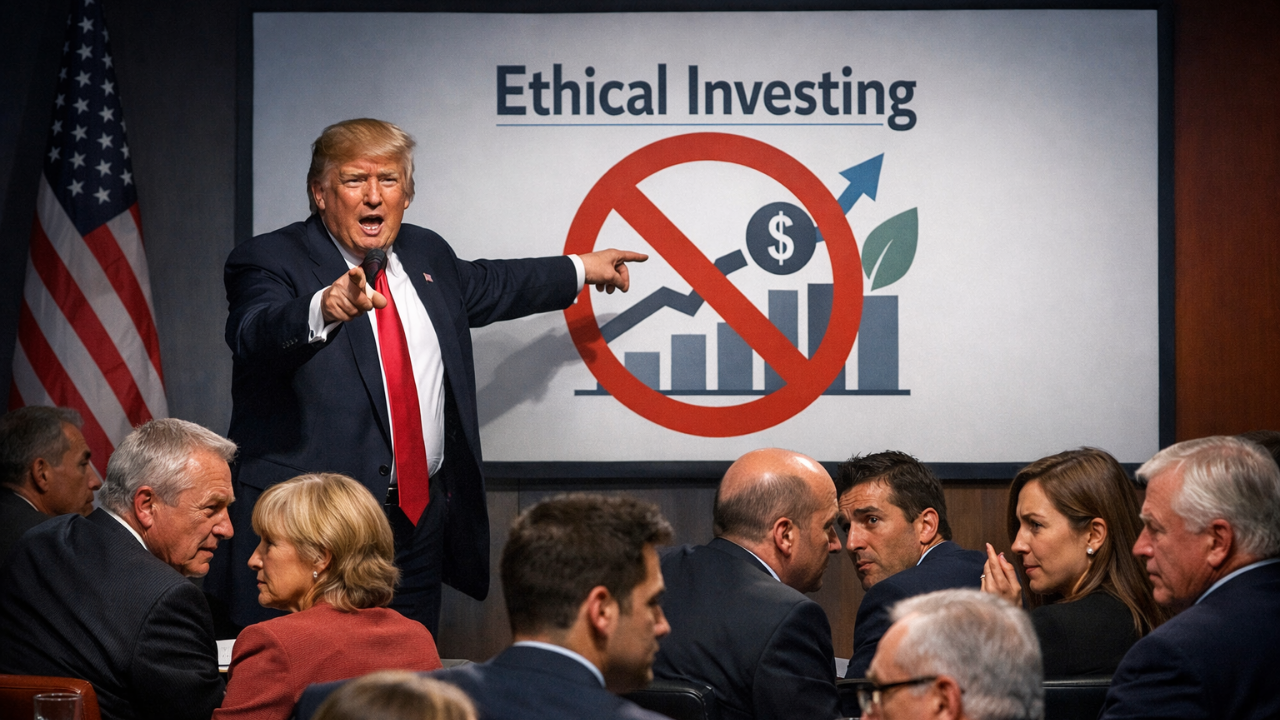Idealism, Income and Identity: What Our Investments Say about Us
When it comes to ethical investing, what we say we believe and where we actually put our money aren’t always aligned. The latest investor data and survey results from Nucleus Wealth highlight a fascinating tension that we have termed: ideals versus action.
Many Australians express concern about the ethical behaviour of companies. They consider environmental harm, human rights violations, or products that they believe are controversial as some of those concerns. However, what really matters is that only some choose to translate these values into investment choices.
Every year we survey hundreds of Australians about their ethical investing preferences. But while survey responses help us understand broad sentiment, real-world investor behaviour tells a more accurate story. Sometimes what we say and how we act take very different paths.
At Nucleus Wealth, we offer clients a choice of exclusions when building their portfolios to suit different investor sensibilities. This gives us significant insight into what people say matters to them, but also which values they’re willing to reflect in their portfolios.

Approximately two-thirds of Nucleus investors choose some form of exclusion. Just under half of those opt for specific ethical screens, such as investments that avoid gambling, fossil fuels, or companies with poor human rights records. The rest select exclusions that are more investment-driven, such as avoiding underperforming sectors or companies with poor governance metrics.
Put simply, talking about values is easy. Investing according to them is where the tough choices are really made. But what do the survey results show us?
Men are from Mars...
One of the clearest divides in our data lies along gender lines. Women are significantly more likely than men to make ethical investing choices, especially within superannuation portfolios.

The differences are noticeable in several categories when looking at all people surveyed especially:
- Health (e.g. tobacco or junk food companies): 42% of women opt for health-related exclusions verses 30% of men.
- Animal rights: 66% of women would opt to exclude investments that impact animal rights along with 44% of men.
- Vices (e.g. alcohol, gambling, pornography): 68% of women suggest they would exclude these investment options in comparison to 58% of men.
The narrowest gap is in climate change exclusions, where both men (72%) and women (69%) show similar levels of concern, and interestingly, survey data suggests men are slightly more likely than women to select climate-related exclusions, even if that doesn’t always translate into actual portfolio choices.
We also see stark gender splits within subcategories. For example, “Lack of Gender Diversity” as an exclusion resonates far more with women, while men are more tolerant of investing in cannabis or pornography-related stocks.
Inside super, the gender differences are even more amplified. Women are far more likely to make ethical choices within their superannuation funds than outside of them. So, how could this be interpreted? In many households, couples invest outside of superannuation in the higher-earning partner’s name, this would often be the man. This may suppress the expression of women’s values in those investments. Inside superannuation, where women have greater control because it is their portfolio, their ethical preferences come through much more clearly.
Conversely, men are more ethically inclined outside of superannuation than within it, further reinforcing the idea that who holds the account affects the choices made.
Talking about my generation...
The age-related trends are equally revealing and a little surprising.
Gen Z leads the way in ethical investing, followed by Baby Boomers and the Silent Generation. That’s right, the oldest and youngest investors are the most likely to make values-based decisions.
Why the U-shape? It may be that younger investors, with decades until retirement, feel freer to prioritise ideals. Meanwhile, retirees or near-retirees, whose major financial goals are behind them, may have the capacity to act on long-held values.
Millennials, by contrast, tend not to reflect their survey responses with their actions. They are the least likely to make ethical choices today, a sharp contrast to five years ago when they led the pack. The shift may reflect changing life stages: growing families, mortgages, and a laser focus on financial stability. They’ve also lived through the covid years and witnessed shifting global economic priorities, especially recently with US economic policies. This pragmatic tilt may suggest that as idealistic investors age, real-world pressures take precedence.







